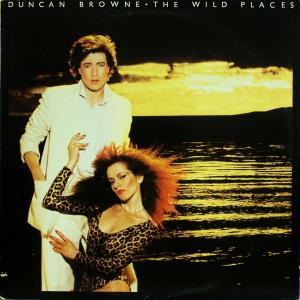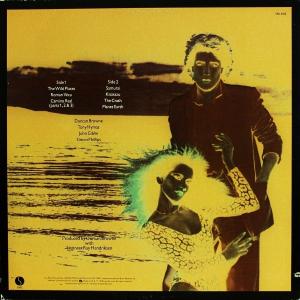Strawberry Bricks Entry:
Duncan Browne's career began in the 1960s under the management of Andrew Loog Oldham and the Immediate album. His earliest albums offered folk and classic guitar music, but deeper listening reveals a compositional style that recalls Genesis' more gentle moments. He also provided a choral arrangement for The Nice's version of Tim Hardin's "Hang On to a Dream." Browne's self-titled 1973 album yielded a minor hit with the single "Journey" b/w "In A Mist," which rose to No. 23 on the UK charts. In the mid-70s, the guitarist teamed up with Peter Godwin and Sean Lyons for the post-glam band Metro. Their self-titled album featured the classic track "Criminal World," later covered by David Bowie. However, Browne only lasted one album with Metro, leaving Godwin and Lyons to pursue a musical course into the new wave. Browne then recruited a top-shelf rhythm section of bassist John Giblin and drummer Simon Phillips for his next record, The Wild Places, released in 1978 on Sire Records. Also joining for the record was noted session keyboardist Tony Hymas. The title track opens with punchy bass and a solid hook; but as the track progresses, it becomes obvious that Browne's going for a progressive sound somewhere in the realm of Anthony Phillips or Steve Hackett's music—and as the fade confirms, everyone delivers. "Roman Vécu" offers a somber vocal from Browne, as well as some beautiful intertwining guitar lines towards the end. "Camino Real" is a full-on display of both the instrumental prowess of the album's musicians and Browne's compositional skill. Co-written with Godwin and dating back to their Metro days, "Samurai" has a proggy intro and break that quickly switches gear to some cutting rock riffing, with an uncharacteristically strong vocal delivery from Browne. The introspective "Kisarazu" floats over Browne's finger-picked guitar and a compatible arrangement. "The Crash" is a spry number that skates along its catchy hook, while "Planet Earth," also co-written with Godwin, is more placid; the aching vocal delivery pairs with an enrapturing coda. For his next album, Streets Of Fire, Browne took his hand at lead guitar, though clearly in a Mark Knopfler-style of playing. It's a fiery and well-executed album; but with chart success proving elusive Browne then turned to scoring films and music (quite successfully) for the BBC in the 1980s. Sadly, Browne would succumb to cancer in 1993.



